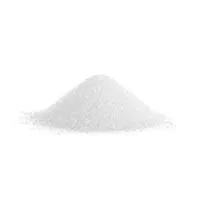
The Role of Anti-Foaming Agents in Food Production and Preservation Techniques
The Role of Anti-Foaming Agents in Food Production
In the food industry, ensuring product consistency and quality is key to meeting consumer expectations. One of the lesser-known substances that play a crucial role in this process is anti-foaming agents. These additives are vital in controlling the formation of foam during food processing, thus enhancing both the efficiency of production and the quality of the final product.
Foaming can be a significant issue in various food processes, particularly during mixing, boiling, and cooking. For instance, during the production of dairy products like cheese or yogurt, foam can disrupt the natural textures and lead to inconsistent quality. Similarly, in the manufacturing of sauces or soups, excessive foam can create challenges in packaging and reduce the overall volume of the product. This is where anti-foaming agents come into play.
The Role of Anti-Foaming Agents in Food Production
One of the most widely used anti-foaming agents in the food industry is polydimethylsiloxane, a type of silicone. This compound is particularly effective due to its ability to spread rapidly across the surface of the foam, thereby limiting bubble formation. Furthermore, it is stable under a wide range of temperatures and pH levels, making it ideal for various food applications.
anti foaming agent in food

While the use of anti-foaming agents is essential, it is also governed by strict regulations to ensure consumer safety. In the United States, for instance, the Food and Drug Administration (FDA) lists certain anti-foaming agents as Generally Recognized As Safe (GRAS). This means they can be used within specified limits in food production without posing any health risks to consumers.
It's important to note that the effectiveness of anti-foaming agents can vary based on the specific food ingredients and manufacturing conditions. Therefore, food manufacturers often conduct extensive testing to determine the optimal type and dosage of anti-foaming agents needed for their products. This not only ensures the desired texture and appearance of the final product but also maximizes production efficiency, reducing waste and costs associated with foam management.
Moreover, as consumer awareness regarding food ingredients increases, many manufacturers are exploring natural alternatives to traditional anti-foaming agents. Plant-based oils, such as vegetable or soybean oils, have been identified as promising bio-based defoamers. These natural options can appeal to health-conscious consumers while still effectively controlling foam in food processing.
In conclusion, anti-foaming agents are a crucial component of food production, ensuring the quality and consistency of various products while adhering to safety regulations. Their ability to control foam during processing not only improves the efficiency of manufacturing but also enhances the quality of the final product. As the food industry continues to evolve, the exploration of both synthetic and natural anti-foaming agents will likely play an important role in meeting the demands of consumers and producers alike.
-
nitrile-rubber-honoring-strict-production-standardsNewsAug.22,2025
-
aspartame-ingredients-honoring-food-safety-valuesNewsAug.22,2025
-
fertilizer-for-balanced-plant-nutritionNewsAug.22,2025
-
cyanide-gold-processing-with-high-purity-additivesNewsAug.22,2025
-
formic-acid-in-textile-dyeing-applicationsNewsAug.22,2025
-
aluminum-hydroxide-gel-in-skincare-productsNewsAug.22,2025
-
Regulatory Compliance for Global Mining Chemicals UseNewsAug.12,2025
Hebei Tenger Chemical Technology Co., Ltd. focuses on the chemical industry and is committed to the export service of chemical raw materials.
-

view more DiethanolisopropanolamineIn the ever-growing field of chemical solutions, diethanolisopropanolamine (DEIPA) stands out as a versatile and important compound. Due to its unique chemical structure and properties, DEIPA is of interest to various industries including construction, personal care, and agriculture. -

view more TriisopropanolamineTriisopropanolamine (TIPA) alkanol amine substance, is a kind of alcohol amine compound with amino and alcohol hydroxyl, and because of its molecules contains both amino and hydroxyl. -

view more Tetramethyl Thiuram DisulfideTetramethyl thiuram disulfide, also known as TMTD, is a white to light-yellow powder with a distinct sulfur-like odor. It is soluble in organic solvents such as benzene, acetone, and ethyl acetate, making it highly versatile for use in different formulations. TMTD is known for its excellent vulcanization acceleration properties, which makes it a key ingredient in the production of rubber products. Additionally, it acts as an effective fungicide and bactericide, making it valuable in agricultural applications. Its high purity and stability ensure consistent performance, making it a preferred choice for manufacturers across various industries.





